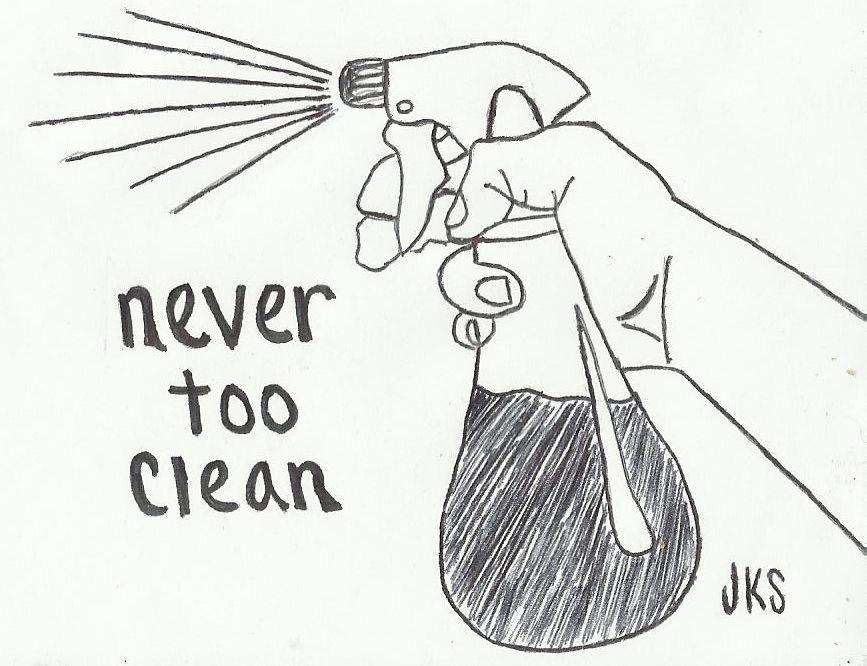We wear a piece of clothing once and throw it in the laundry basket. We soap and rinse a dish after even the tiniest use. We punish our hair and pores with the barrage of chemicals in our soaps, shampoos and conditioners.
In the United States, we have a tendency to over-sanitize. Don’t get me wrong, cleanliness is a good thing, especially because much of the world suffers from poor hygiene and lack of access to clean water, but the degree to which we clean is excessive and kills the body’s natural oils.
Our skin naturally secretes sebum oil. It waterproofs skin and hair while killing germs and sending vitamin E to moisturize the surface. Unfortunately, sebum is like an endangered species. The chemicals inside soaps and shampoos destroy the sebum and basically function as a synthetic replacement for the oil.
I recently talked with a young woman who spent a month backpacking in Alaska as part of a scholarship. Backpacking, she had no access to shampoos or soaps. Interestingly, she said her hair has never felt as good as when she returned. Now, she said, she preserves its state by simply rinsing it with warm water.
Understandably, not everyone would enjoy this sort of hair treatment, but it doesn’t mean we have to turn to soaps and shampoos. As expected, the amount of oil that your body produces is shown to be genetic and causes some people to have greasy hair and skin, but destroying the oil is not the way to treat excessive oil. When a person with greasy skin rids the oil from his or her hair and skin, the body tries to replenish it only to be defeated by another shower. Instead, people should simply brush and wipe the excessive oil.
Greasy skin is known to cause acne, which I’ve seen cause distress in my own family. Surprisingly, after trying different acne lotions and pharmaceuticals, which severely dry out skin, we found that tea tree oil came out on top. Members of my family applied the oil after simply wiping and rinsing their faces with warm water. Though just anecdotal, it’s evidence nonetheless for alternative treatments for grease.
Historically, the production of soaps and shampoos didn’t hit the mass scale until the 19th century and daily bathing did not become mainstream until the mid-20th century. Some experts, such as John Fielder, natural hygienist and founder of the Academy of Natural Living in Australia, disagree with the idea of constant bathing.
“Even the most simple of soaps and shampoos destroy the body’s natural oils and thus the protection derived therefrom,” Fielder said.
There’s a balance between dirty and clean, and we’ve severely offset the scale.
Many germs and bacteria are beneficial to us. We need them in our stomachs and on our skin, but the constant bathing doesn’t give them a chance.
That doesn’t mean we all throw away our hygiene practices either. The excessive buildup of dirt and bodily waste can foster parasites, but can easily be avoided without a daily chemical rubdown.
Our bodies are designed to maintain themselves, and they’ve been shown to do their job quite well, but sometimes we forget and feel the need to over compensate.
“In cleanliness there is bacterial activity; there is life. Without bacteria there would be no life,” Fielder said.
Cleanliness is different than sterility, and you can achieve the former without constantly barraging your body with unnecessary and harmful chemicals.











